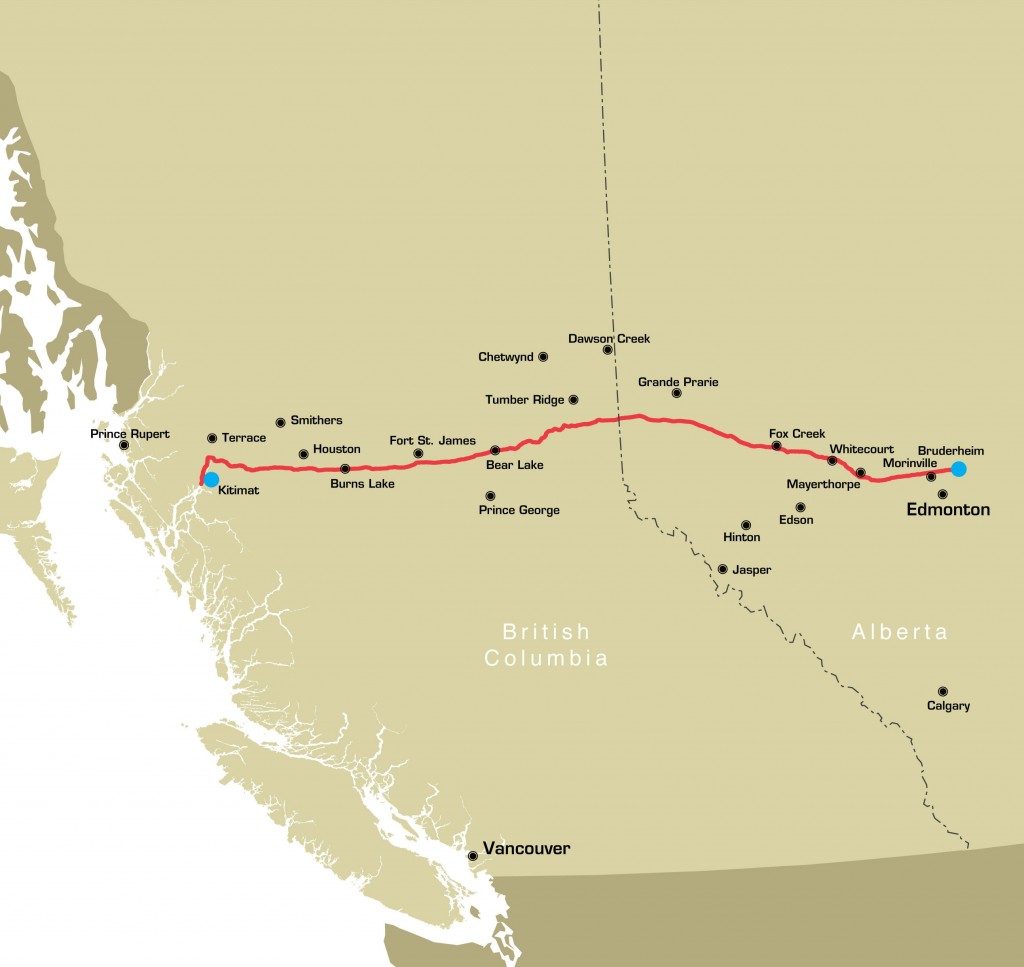Summary of Northern Gateway pipeline’s approval thus far
By Angela Espinoza, News Editor
Despite intense public opposition, Stephen Harper announced the Northern Gateway pipeline was approved on June 17. There’s been an ensuing backlash throughout BC, and both the Liberal and NDP parties have stated they wish to reverse the approval.
The project would likely not begin until late 2015 at the earliest, but that is only if BC’s five conditions, along with the 209 conditions laid out by the National Energy Board, are met. BC’s many aboriginal communities have also come together to take legal action against the decision.
While the pipeline proposes to potentially generate billions for Canada, the opposition stems from the fact that there will undoubtedly be severe damage to BC’s environment. Tankers also have a notable history for spills, and to put the pipeline into operation would mean putting BC’s coastline at risk.
How the pipeline would work is that roughly 500,000 barrels of bitumen (thick oil) would be shipped from the Alberta oil sands through Kitimat, BC daily. Kitimat connects us to the Pacific Ocean, as well as the Pacific Rim, where ships can then head towards destinations further out, such as Asia. This directly places Kitimat in one of the most dangerous areas for spills and leaks.
On June 26, the Supreme Court of Canada ruled that aboriginals in BC have title claims (and control) over the Tsilhqot’in Nation. This has come as a major victory for aboriginal communities, who are hoping this is the first of future land claim rulings. The ruling has also proven to be a potential threat to the pipeline’s construction, as the pipeline may no longer be able to run through the area.
Former BC Attorney-General Geoff Plant told the Globe and Mail, “The aboriginal owners of those lands need to be included in the arrangements because without their consent, it’s going to be very difficult to develop aboriginal title lands.
“If First Nations decide that they don’t want a certain type of economic development activity on their lands because they don’t want the impact from that activity, this case makes it pretty close to impossible to imagine a situation where that activity will be permitted.”
Harper also recently announced that environmentalist Elizabeth Dowdeswell was now Ontario’s lieutenant-governor. Dowdeswell has been highly critical of the oil sands, providing research into the amount of damage the sands could cause to Alberta.
Between now and the 2015 federal election next October, there are likely to be more major changes regarding the future of the pipeline. While its construction has been approved, many are skeptical that the pipeline will come to fruition. What’s certain is that there is likely more political chaos to come as BC and the rest of Canada prepare for what could or could not be a huge change economically and environmentally.


